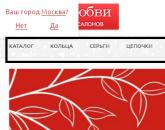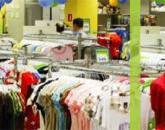Zolotonosha Butter Factory, JSC. Zolotonoshsky butter-making plant, CJSC Detailed information about the enterprise
Additional information about the company
Milk and dairy products, condensed and dry. Ice cream and sherbet. Cream, sour cream. Cheese, cottage cheese
Detailed information about the enterprise
Yogurt. Kefir. Butter is fresh, piquant (with flavorings and flavored). Milk and dairy products, fresh, pasteurized, skimmed (skimmed), homogenized, sterilized, sour, condensed and dry, vacuum dried. Ice cream and sherbet, milk, cream and ice cream. Fresh cream, sour cream. Sour cream. Processed cheese, in blocks, portioned, hard, cottage cheese. Cottage cheese and curd products, sour milk cheese
Company headings
Food and drink
Company on the map, directions
Zolotonoshsky butter-making plant, CJSC - a brief profile of the company
The activities of the company are "Food and drinks / Milk and dairy products, Food and drinks / Ice cream, Food and drinks / Cheese - production, sale." Zolotonosha Butter Plant, CJSC is located at G. Lysenko St. 18, Zolotonosha, Cherkasy region. 19701 in the region Ukraine, Zolotonosha. You can contact the company representatives by the following numbers - +380 4737 52678 +380 4737 52176 +380 4737 52330 Fax: +380 4737 52759.
Industries
- Manufacture of food products n.e.c.
- Wholesale of food, beverages and tobacco products
- Wholesale of dairy products, eggs, vegetable oils and fats
- Retail trade in non-specialized stores with a predominance of the food assortment
Products, services
Products: Kefir / Animal butter / Milk / Condensed milk with sugar / Powdered milk / Ryazhenka / Sour cream / Cheese
About company
Dairy Alliance is a Ukrainian group of companies engaged in the production of dairy products.
The company produces dairy products under the following brands:
Dairy Alliance.
Hopsy.
Yagotinsky.
Piryatin.
Zlatokran.
Slavia.
Dairy Alliance does not use harmful additives that artificially extend the shelf life of the product. The priority for the company is the production of products, the safety and quality of which cannot be doubted. This is ensured by respecting the oldest traditions of production. Our partners can be calm, both for their health and for the health of their consumers.
All dairy products of the Company are made only from natural milk. All raw materials undergo strict quality control and are cooled in a timely manner, so they meet all modern requirements for the production of dairy products.
For achievement best results in the field of sales, the Company is actively implementing innovative technologies– in particular, the automation system logistics processes, a system for automating customer relationship management.
Activities
- 10.51 - Milk processing, butter and cheese production
- 46.33 - Wholesale of dairy products, eggs, edible oils and fats
- 46.39 - Non-specialized wholesale food, beverages and tobacco products
- 46.90 - Non-specialized wholesale trade
- 47.11 - Retail in non-specialized stores mainly in food, beverages and tobacco products
- 47.81 - Retail sale from stalls and markets of food, beverages and tobacco
12/07/2017 - The myth of non-profitability is debunked at the Zolotonosha Butter Plant dairy business in Ukraine and the absence export potential Ukrainian dairy products.
Vladislav Kulinich, Chairman of the Board of PJSC Zolotonosha Butter Factory (part of the Milk Alliance group of companies), has been working at the enterprise for 35 years, twenty of them as a director. Unlike many similar enterprises in Ukraine, the plant does not reduce production, but rather increase it, processing 100 thousand tons of milk into cheese, butter and whey powder, and gradually upgrade capacities.
He spoke about export prospects and government obstacles for Ukrainian dairy processing in an interview with Agravery.com.
Recently, a workshop for the production of butter was opened at the plant. How long did the reconstruction last, and how much money was spent on it?
- The reconstruction was planned for a long time, but they did it only this season. The process of re-equipment lasted about a year, and the cost of repairing the premises, improving equipment amounted to about three million hryvnias. I must say that over the past five years, about 100 million hryvnias have been invested in our plant. These funds went to the development, improvement of technologies to ensure that they correspond international systems quality safety.
For example, this year we passed the audit of the well-known Swiss company SGS and received the FSSC 22000 certificate. This is the most high level safety in the industry, which only exists today. This will make it possible to work with well-known brands and networks without additional checks.
This is a kind of pass - after all, before concluding contracts, we had to prove for a long time that we were ready to become a reliable partner and supplier - companies often hired third-party auditors to check the enterprise. Today it is not needed. The FSSC 22000 certificate is the difference between our responsible attitude to production at all its levels.
What other technical re-equipment of the enterprise took place this year?
— This year we spent UAH 26 million on re-equipment. The second stage of local treatment facilities was put into operation, and the oil production shop was reconstructed. We purchased new packaging machines for hard cheese, carried out some work on heat recovery in the compressor shop - this will give us the opportunity to save resources and use water for washing the enterprise through recovery, purchased additional equipment for laboratories, and new pasteurizers. Much attention has been paid to the sanitary and technical condition of the premises, we want our employees to work more pleasantly. Our factory employs 620 people. Salary has gone up by 35% in the last year.
How many products do you produce?
“During the ten months of this year, we purchased and processed more than 99 thousand tons of milk at our facilities, produced 2,700 tons of butter, 6,000 thousand tons of dry whey and 7,000 tons of hard cheeses - all of export quality. This is 15% more than last year.
What can you say about financial results of the year?
— Good, although I would like better. Unfortunately, we do not depend only on domestic prices. Constant fluctuations in prices for butter and dairy products on foreign markets also affect our profitability. I will say one thing - we are fulfilling the financial plan.
How do you assess the state of the dairy industry in general?
- If earlier, in Soviet times, there were about 545 milk processing enterprises in Ukraine, today a significant part of them have already closed, there are just over 100 left (and this is with a large margin), and those that meet European requirements can become exporters no more than 15-16 for the whole country. Our company is developing.
On export positions and the use of non-tariff quotas
You position your company as export-oriented. To which countries do you deliver products?
– Today we supply products to 41 countries of the world, we work with such well-known transnational companies as Mondelēz International, Nestle, Danone and others. In total, for 10 months of this year we exported about 1.5 thousand tons of butter and 4.5 thousand tons of dry dairy products. Of course, a small part of the milk powder remains inside the country for the needs of other enterprises of the Dairy Alliance, or in order to cover their own needs for raw materials during the peak winter period when there is not enough raw milk for processors.
It is no secret that earlier Russia was the main client for Ukrainian cheeses and butter, but today the companies have almost completely reoriented to other markets. How do you assess how well it was done? Is such a change in "trading location" a positive thing?
— Yes, definitely. Today, Europeans are more loyal to “made in Ukraine” products, there are fewer precautions. The main advantage of working with European and Arab companies is predictability - we know for sure that exports will not be closed for political reasons.
Did you manage to work on the European non-tariff quota?
- The quota was meager - our company produces 6 thousand tons of dry whey per year, while only 2 thousand tons could be exported to the whole of Ukraine under the quota. This is actually nothing in terms of volume, however, for certain companies it is a chance to make themselves known. For a certain period, we did not export at all - Europe closed itself, the requirements for the CIS countries for the presence of antibiotics, in particular chloramphinicol in products, were tightened, and although we did not have them, our products turned out to be unnecessary.
Thus, they protected their producers, now, with the abolition of internal quotas, it has become easier to work and compete. Having started the export of whey according to the quota, we resumed cooperation with a well-known Dutch company Interfood.
What products do you think Europe lacks?
- It cannot be said that there are not closed niches for dairy products, the market is quite crowded. To work successfully, you need to have a name on international market and it is difficult to gain a stable reputation. We have recently installed a dry whey demineralization line. We take salt from here, and in this way we get actually pure protein, which is the basis for the production of many types of products, in particular baby food. This product will definitely be in demand.
In addition, we are constantly working on creating new positions in the assortment of cheeses and dairy products.
In the winter of this year, we will present products at international exhibition Gulfood in the UAE. If earlier we went to Europe for exhibitions of this level, now we have reoriented to the East, Africa and Asian countries. It is in these countries that we see more opportunities for product promotion.
I know that you are actively working with China. How difficult is it to make deliveries to this country and do you plan to expand the range?
— Yes, we work with China and Japan. I will say that it was difficult to break into these markets. Delegations, auditors came to us several times, pointed out to us technological errors and we corrected them. It did not help. Only after the governments of China and Ukraine agreed on the supply of certain types of agricultural products, it became easier to communicate.
As for batches of products, the requirements are equally high in all countries, not only in China. We do not separate lines, and we do not know which products will get to a certain country - they are all absolutely the same. We sent whey and powdered milk to China. We recently sent them a test batch of butter.
Therefore, when do you plan to conclude agreements for the supply of oil? How long is the process?
— I hope we will receive an answer regarding the possibility of deliveries at the beginning of next year.
How price competitive are we with other leading dairy products suppliers in the global market?
The world has long formed its own hierarchy by regions and countries - the leading players in the segment are the United States and New Zealand (the prices are the highest here), then the group is the EU countries (there are average prices), then the rest of the world. For example, if in Europe oil, in terms of cost, cost 7200 UAH. per ton, then we sold at the level of 5500-6000 UAH. per ton.
About dairy raw materials and cooperation
One of the declared strategies of the "Dairy Alliance" was eventually to completely abandon the purchase of milk from the population. What is the amount of raw milk from the population and how much from industrial enterprises buy?
“Unfortunately, there is not enough milk from farms in Ukraine, there is tough competition for it from processors. For example, we have to purchase raw materials in 5 regions in order to provide capacity. We are forced to accept milk from the population, carefully choosing suppliers. We have a very serious laboratory control, we buy the most modern equipment for this - test systems and devices.
We also share all milk flows between Dairy Alliance enterprises. Today, I can estimate the ratio of milk from households and from industrial enterprises as 40% to 60%. It is clear that at the factory we use the highest quality raw materials in order to adhere to the established standards. Diluted milk means direct losses for us, we refused such suppliers.
The owners say that the profitability of milk yields is now 10%. What other incentives, besides financial, can the processor keep the milk producer from continuing to work and not slaughter the cattle?
- There should be an incentive, this is state control and assistance to enterprises. I would like the market to be regulated, so that not only processors, but also milk producers work on quality. When they collect everything in a row and do not control, they have low-quality products. If the state does nothing to adequately support the dairy business, we simply risk losing the industry, such prospects are frankly frightening.
If it scares you, then isn't it time to create your own farms, rent land, buy young animals?
- Firstly, this is not our business, and secondly, even the most powerful farm will not be able to provide our full capacity. We also do not sit idly by - we help our farmers with funds for young animals, and fuel, and spare parts for equipment.
In your opinion, as a processor, what should be the fair price of milk?
— There is no such price category. There is an economically justified one - this is when we make products and successfully sell them, we pay off the supplier. So far, this has been successful, although it is becoming more difficult to do this every day.
Recently, the topic of cooperation in the dairy industry and the possibility of building a cooperative processing plant have been discussed among dairy producers. What do you think about it?
- World practice shows that such cooperation makes perfect sense - in New Zealand they generally work only cooperatively, in Italy there are both cooperatives and ordinary factories, they compete with each other. Cooperatives of producers and processors also work in the EU, and the producers themselves get together and also produce products together - this is the right process, which I personally support.
I really want to believe that cooperatives can overcome the phenomenon of “milk from the population” in a civilized way and bring it into line with bacterial and other requirements. Unfortunately, until now the situation with milk, which is collected by producers, is critical in terms of quality. On the other hand, unscrupulous businessmen are now hiding behind the cooperative movement;
The problem with non-return of VAT to enterprises and subsidies. How acute is it for you?
— Currently, we have no problems with VAT refunds. Once there were subsidies for milk producers, then less and less, now there are none for three years.
Perhaps somewhere there is support for someone, but at our Dairy Alliance enterprises we work and develop without support from the state, and honestly, this does not prevent us from achieving success.
Popular
- The technical audit includes
- Technical audit of the enterprise and features of its providence
- Scrap steel construction specifications GOST Scrap steel construction specifications
- Requirements for the quality of sawdust used as a raw material in the production of fuel pellets - document types and sizes
- Business plan mini refinery distillation unit
- T shaped keys for hex bolts gost
- Mineral powder for asphalt concrete and organo-mineral mixtures
- The ten fastest lenses What does lens aperture mean
- Shift method What does shift schedule mean
- How to create an effective company slogan




